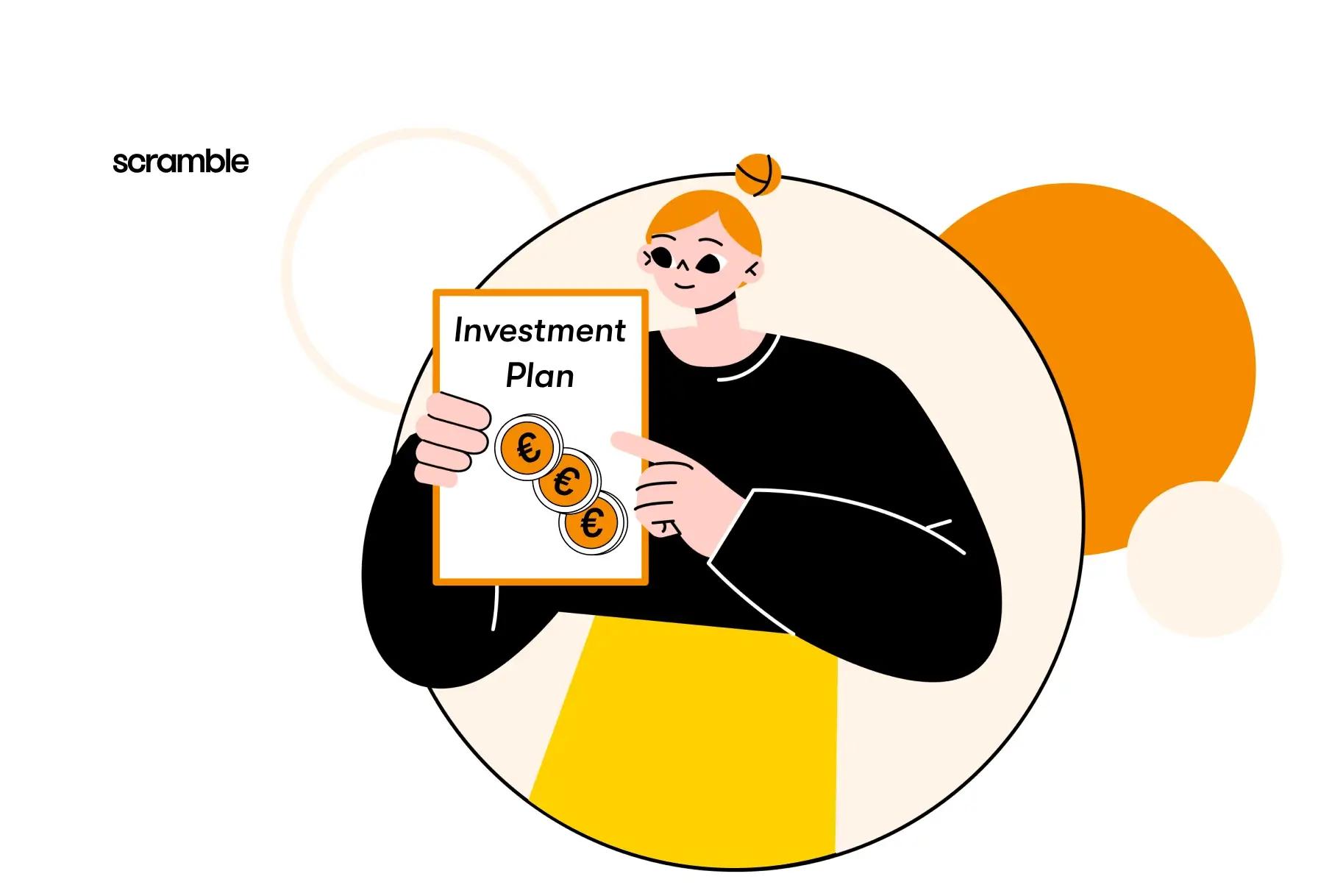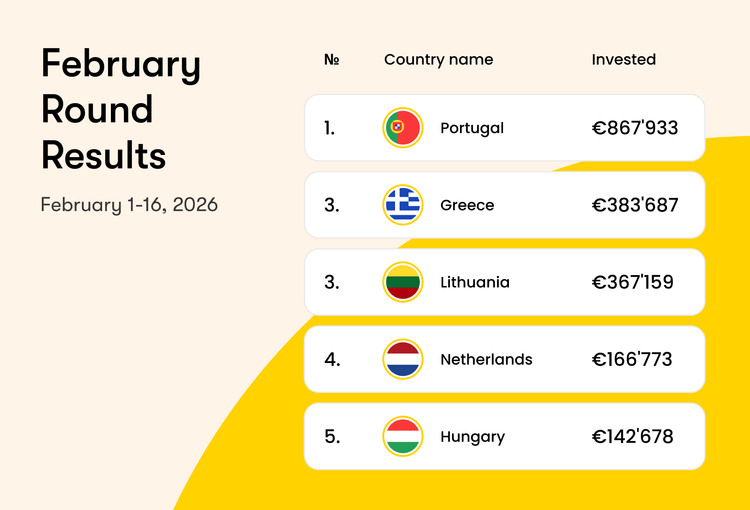Sichern Sie Ihr Morgen: Warum Sie schon in jungen Jahren mit dem Investieren beginnen sollten
Die Frage, ob man früh investieren sollte, beschäftigt die meisten jungen Erwachsenen. Viele Studien und Umfragen zeigen, dass es erhebliche Vorteile hat, früher als später mit dem Investieren zu beginnen. Der beste Zeitpunkt für einen Investitionsbeginn ist während oder kurz nach dem Studium, wenn man Anfang 20 ist. Diese Altersgruppe ist klar im Vorteil, da sie dank verschiedener Faktoren wie technologischer Fortschritt, Risikobereitschaft und anderer Vorteile einer frühen Investition das Potenzial hat, ein deutlich größeres Vermögen aufzubauen. Neben den finanziellen Vorteilen lernen Sie durch frühes Investieren auch finanzielle Unabhängigkeit und Disziplin sowie ein klares Verständnis für den Unterschied zwischen Investieren und Sparen. Für junge Anleger, die nach Inspiration suchen oder sich fragen, ob es eine gute Idee ist, früh mit dem Investieren anzufangen, gibt es einige gute Gründe, den Sprung in die Welt des Investierens zu wagen.

Die Frage, ob man früh investieren sollte, beschäftigt die meisten jungen Erwachsenen. Viele Studien und Umfragen zeigen, dass es erhebliche Vorteile hat, früher als später mit dem Investieren zu beginnen. Idealerweise ist der beste Zeitpunkt für einen Investitionsbeginn während oder kurz nach dem Studium, wenn man Anfang 20 ist. Diese Altersgruppe ist klar im Vorteil, da sie dank verschiedener Faktoren wie technologischer Fortschritt, Risikobereitschaft und anderer Vorteile einer frühen Investition das Potenzial hat, ein deutlich größeres Vermögen aufzubauen. Abgesehen von den finanziellen Vorteilen lehrt frühes Investieren auch finanzielle Unabhängigkeit und Disziplin sowie ein klares Verständnis für den Unterschied zwischen Investieren und Sparen.
>Für junge Anleger, die nach Inspiration suchen oder sich fragen, ob es eine gute Idee ist, früh mit dem Investieren anzufangen, gibt es hier einige gute Gründe, den Sprung in die Welt des Investierens zu wagen.
1. Die Macht des Zinseszinses
Einer der größten Vorteile, wenn man schon in jungen Jahren mit dem Investieren beginnt, ist die unglaubliche Wirkung, die der Zinseszinseffekt auf Ihr Portfolio haben kann. Der Zinseszins wirkt Wunder, wenn Sie Ihre Erträge reinvestieren, so dass sie für Sie arbeiten und im Laufe der Zeit mehr Geld einbringen. Wenn Sie früh mit dem Investieren beginnen, haben Sie mehr Zeit am Markt, können die Vorteile des Zinseszinseffekts optimal nutzen und müssen letztlich weniger Geld pro Monat investieren, um Ihre Ruhestandsziele zu erreichen oder sogar zu übertreffen.
2. höhere Risikofähigkeit
Wenn Sie jung sind, haben Sie die Möglichkeit, mehr Risiken einzugehen als später im Leben. Mit weniger finanziellen Verpflichtungen können Sie sich ohne übermäßige Bedenken an riskantere Anlageprodukte heranwagen. Und selbst wenn Ihre Investitionen schief gehen, haben Sie in jungen Jahren den Vorteil, dass Sie viel Zeit haben, Fehler zu korrigieren und sich von eventuellen Verlusten in der Zukunft zu erholen.
3. eine Gewohnheit zum Sparen kultivieren
Wenn man in jungen Jahren investiert, entwickelt man auf natürliche Weise die Gewohnheit, mehr zu sparen. Wenn Sie früh damit beginnen, entwickeln Sie einen kognitiven Prozess, der das Sparen fördert, indem Sie unnötige Ausgaben einschränken und diese Ersparnisse für Investitionen verwenden. Diese Gewohnheit stärkt nicht nur Ihr finanzielles Fundament, sondern schafft auch die Voraussetzungen für eine sicherere Zukunft.
4. mehr Zeit zum Erholen
Im Falle von Investitionsverlusten haben Sie bei einem frühen Einstieg mehr Zeit, diese Verluste wieder auszugleichen. Im Gegensatz zu Anlegern, die erst später im Leben investieren und nur wenig Zeit haben, sich zu erholen, haben frühe Anleger mehr Zeit, den Wert ihrer Anlagen zu steigern und eventuelle Rückschläge auszugleichen.
5. Eine sichere Zukunft gewährleisten
Das Leben bringt oft unerwartete Ausgaben mit sich, die sofortige Mittel erfordern. Frühzeitiges Investieren kann in diesen kritischen Momenten ein Lebensretter sein, da es ein zuverlässiges finanzielles Sicherheitsnetz bietet. Frühzeitige Investitionen verringern die Notwendigkeit, sich Geld von anderen zu leihen, und fördern so ein Gefühl der Unabhängigkeit und Sicherheit.
Zusammenfassend lässt sich sagen: Je früher man mit dem Investieren beginnt, desto leichter ist es, im Laufe der Zeit ein beträchtliches Vermögen aufzubauen. Auch wenn die Anfangsphase eine Herausforderung darstellt, kann das Warten auf den perfekten Zeitpunkt dazu führen, dass man Chancen verpasst. Mit zunehmendem Alter werden Zeit und Energie immer knapper, so dass frühzeitige Investitionen ein strategischer Schritt für langfristiges finanzielles Wohlergehen sind. Warten Sie also nicht darauf, dass die Dinge einfacher werden, sondern machen Sie den entscheidenden Schritt zu frühzeitigen Investitionen, selbst mit kleinen Beträgen. Frühzeitiges Investieren kann eine der besten Entscheidungen sein, die Sie in Ihrem Leben für Ihr finanzielles Wohlergehen treffen.
Neueste Beiträge


